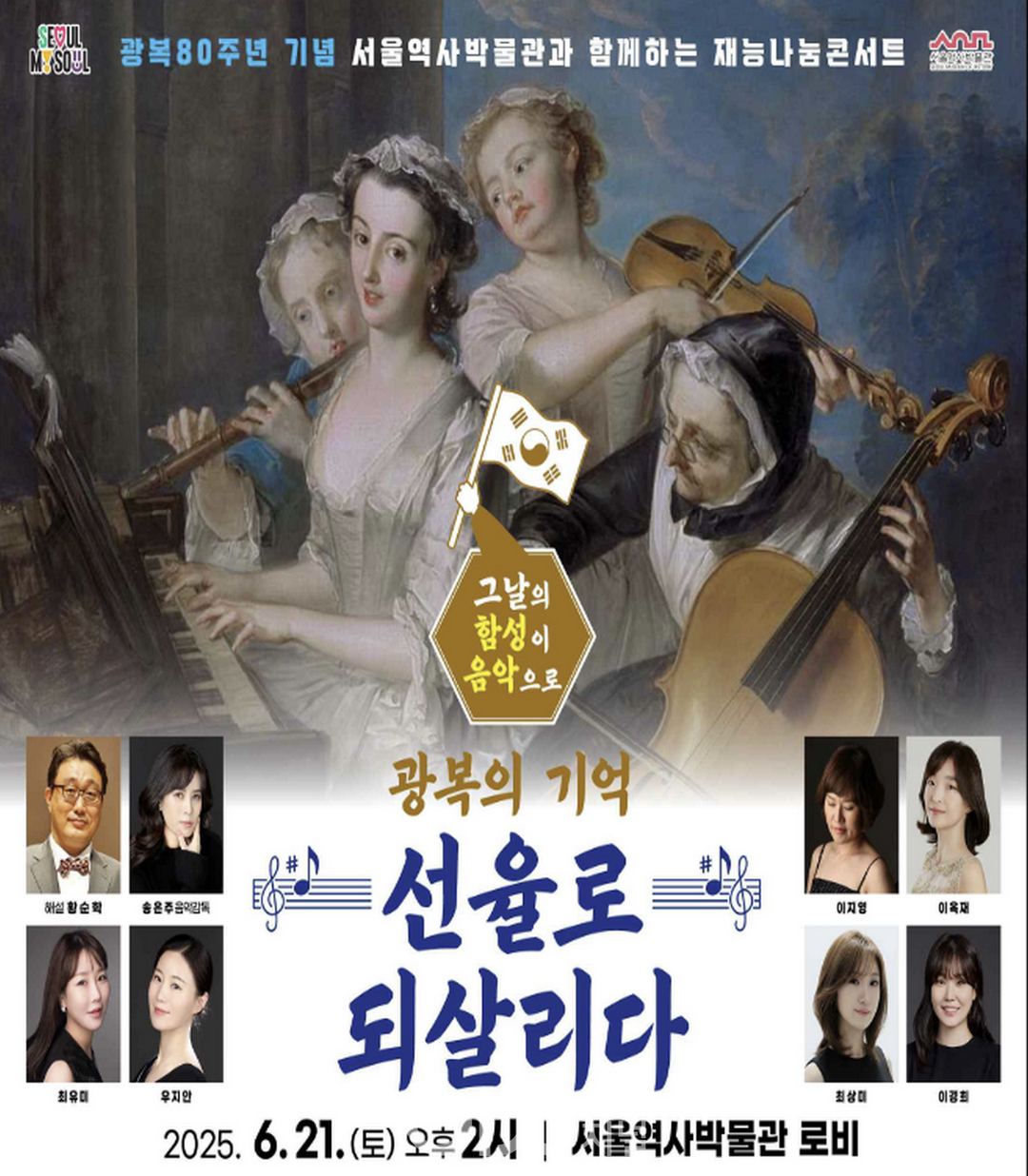
Seoul, South Korea – The echoes of liberation will resonate once more in 2025, this time through the power of music. The Seoul Museum of History is set to launch its "Talent Sharing Concert" series on June 21, marking the 80th anniversary of Korea's liberation from Japanese colonial rule. Under the theme "Liberation! The Roar of That Day Through Music," this concert series aims to weave historical narratives into classical melodies, bringing the spirit of Gwangbok (Liberation) to life for citizens.
The inaugural concert, aptly subtitled "Memories of Liberation, Revived by Melody," is far more than a mere musical performance. It serves as a profound medium to commemorate history, encapsulating both the historical pain and the future hopes of the Korean people. The performances will take place in the accessible lobby of the museum, allowing anyone to freely enjoy the music without the need for special tickets. This initiative transforms a public space into a venue for sharing the profound weight of history through artistic expression.
The diverse lineup of participating artists includes harpsichordists Choi Yu-mi and Choi Sang-mi, pianists Woo Ji-an, Lee Ji-young, and Lee Ok-jae, and organist Lee Kyung-hee. The concert series will be expertly narrated by Professor Hwang Soon-hak of Seoul National University of Science and Technology, with Music Director Song Eun-joo overseeing the entire program.
The repertoire for the first concert is meticulously curated to reflect the historical narrative. It begins with the passionate third movement of Beethoven's Piano Sonata No. 23, "Appassionata," followed by Chopin's Etudes "Heroic" (Op. 53, often referred to as "Polonaise-Fantaisie" but popularly known as "Heroic" or "Victory" due to its triumphant nature) and "Revolutionary" (Op. 10, No. 12). The program culminates with Beethoven's Symphony No. 9, "Ode to Joy," showcasing a total of nine pieces. The selection symbolically links classical masterpieces to the Korean experience: Beethoven's "Appassionata" is interpreted to embody the suffering endured during the Japanese colonial period, while Chopin's "Heroic" and "Revolutionary" Etudes symbolize the unwavering will of the Korean people striving for independence. Finally, "Ode to Joy" represents the peace and solidarity yearned for in the aftermath of liberation. This carefully chosen progression of music allows the audience to emotionally journey through a critical period of Korean history, connecting universal themes of struggle, resilience, and hope to the national narrative of liberation.
This "Talent Sharing Concert" is part of a long-standing initiative by the Seoul Museum of History, which began in 2012. It is a testament to the dedication of cultural and artistic professionals who volunteer their talents to enrich the community. This year, in celebration of the 80th anniversary of liberation, the series will comprise three distinct concerts. The second performance is scheduled for August 16, titled "Recovered Land, Revived Songs," promising another exploration of post-liberation themes through music. The final concert will be held on November 15, under the title "The Resonance of the Harpsichord, Embracing the Korean Heart," suggesting a deeper dive into the cultural and emotional landscape of Korea through the unique sounds of the harpsichord. These subsequent concerts are expected to continue the exploration of Korea's path to independence and its subsequent cultural flourishing, offering different musical perspectives on the nation's journey.
In a thoughtful gesture addressing contemporary social issues, the concert series also extends special consideration to multi-child families in an era of declining birth rates. A dedicated seating area (rows 2-4, a total of 36 seats) will be reserved on the first-floor lobby for these families. Furthermore, families who complete a survey after the performance will receive a small souvenir. This initiative goes beyond simple cultural consumption, fostering an environment where families can collectively engage with both history and art, creating shared memories and reinforcing familial bonds. This demonstrates the museum's commitment to making cultural experiences accessible and meaningful for all segments of society, particularly those facing unique challenges.
Choi Byung-goo, Director of the Seoul Museum of History, expressed his hopes for the series, stating, "We hope this Talent Sharing Concert will become a special memory for citizens and serve as a cultural platform for them to reflect once again on the meaning of liberation." This sentiment underscores the profound significance of the event, aiming not only to entertain but also to educate and inspire a deeper appreciation for Korea's history and the sacrifices made for its freedom. The concert series stands as a powerful reminder of the enduring legacy of Gwangbok and the role of art in preserving and reinterpreting historical narratives for future generations.
[Copyright (c) Global Economic Times. All Rights Reserved.]




























